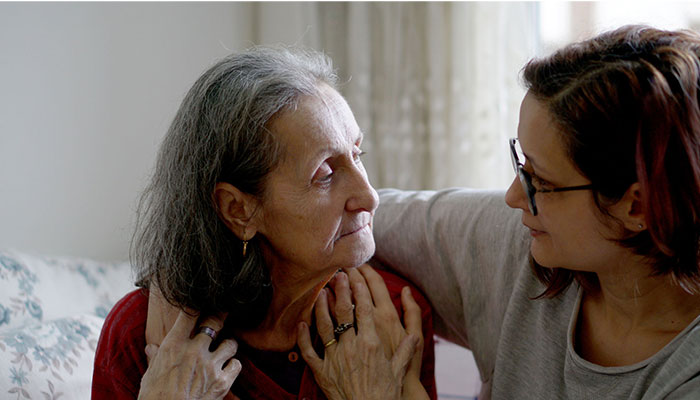Widespread risk screening could slash dementia cases
Treating common health problems and controlling for lifestyle risks could help Australia cut rising dementia rates by as much as 45 per cent. So why aren’t we screening older people and helping them make the necessary changes?

First published by Macquarie University
Australia already has a range of successful screening programs in place for diseases like breast, bowel and cervical cancer, but dementia screening has not yet joined the list despite the huge potential benefits.
Predictive tools using techniques such as brain scans and genetic testing are showing promise, but these are costly and therefore difficult to roll out on a large scale.
However, Macquarie University Lifespan Health and Wellbeing Research Centre Director, Professor Viviana Wuthrich, says there is now sufficient evidence that controlling modifiable lifestyle factors reduces risk for dementia, and could be used for predictive testing and intervention.
“We know people are more likely to be diagnosed with dementia if they meet certain criteria between the ages of 45 and 65, including smoking, drinking too much alcohol, not getting enough exercise, or having obesity, high blood pressure or uncontrolled diabetes,” Professor Wuthrich says.
“Furthermore, in new results just published, LDL cholesterol – the bad cholesterol – and vision loss have also been shown to increase risk.
“In addition to these, uncorrected hearing loss, depression and social isolation have also emerged as key factors for older people developing dementia, giving us further opportunities for intervention. Many of the lifestyle factors increase risk by contributing to vascular damage, neuropathology, stress and inflammation, and reduced cognitive stimulation.
“Hearing loss appears to be important because it reduces the amount of mental stimulation people get. The brain is very much a ‘use it or lose it’ organ, and lack of stimulation can contribute to the loss of neural connections.
“The reasons for the connection with depression and social isolation are less clear, though. It appears that at different stages of life, depression can be an early warning sign for the presence of dementia or could be a direct causal factor. Regardless, that link between depression and dementia has been shown in a number of studies.”
In Australia, there are currently more than 410,000 people living with dementia, and with the aging population, that number is predicted to more than double to about 900,000 by 2050. Worldwide, the current figure is 55 million. In 2050, it is expected to have topped 139 million.

The umbrella term of dementia covers several conditions, including Alzheimer’s disease, vascular dementia, frontotemporal dementia, and Lewy body dementia.
In 2019, the estimated costs of all types of dementia, in terms of healthcare and informal care, was US$1.3 trillion, and by 2030 that is expected to have reached US$2.8 trillion.
These figures do not take in the number of people affected by mild cognitive decline, an age-related condition with similar risk factors to dementia. Symptoms include forgetfulness, difficulty in following conversations, trouble following instructions, getting lost and displaying poor judgment.
The case for a national dementia screening program
With so many clear but modifiable risk factors – some of which are also implicated in heart disease, stroke and cancer – Professor Wuthrich says the introduction of a national risk screening program for people at about age 65 could have a huge impact on the rate of dementia in Australia.
“Primary care could be a place for this screening to occur because our general practitioners are already familiar with our health conditions, and we tend to trust them to give us advice on our health,” Professor Wuthrich says.
“But we need a whole-of-system approach to how we screen and how we fund that screening if we are going to link people with interventions that can address their individual risk factors.
“Telling people they are at risk is not enough. We also need to be able to offer them the support they need to address that, such as access to a dietitian or exercise physiologist or a psychologist.”
While not everyone will have all the risk factors, Professor Wuthrich says there is good evidence to show that addressing any one of the key risks can make a difference, including improvements in cognition in people who are already showing symptoms of mild cognitive decline.
“It’s not just a matter of telling people to drink less, stop smoking, or exercise more, because we all know we should be doing that already for a range of health reasons,” Professor Wuthrich says.
“Some of the research suggests that whether we make changes can come down partly to attitude and partly to motivation. But knowledge is powerful, and explaining why these factors are problematic, and what the increased risk is for dementia can be motivating.
“At every age, humans respond well to rewards and positive reinforcement, so if we want people to not only make these changes, but sustain them in the long term, we need to find ways to increase their motivation.”

To test the viability of screening through general practitioners, Professor Wuthrich and colleague Professor Simon Willcock are leading a clinical trial where patients aged between 60 and 70 are screened for dementia and other health risks. Patients then receive a risk profile and information on how to reduce their risk, including referrals to allied health professionals where necessary.
They are currently seeking GP practitioners and their patients to enrol in this study to test the feasibility and effectiveness of this screening and early intervention approach.
Professor Viviana Wuthrich is a Professor of Clinical Psychology at Macquarie University and Director of the Macquarie University Lifespan Health and Wellbeing Research Centre.




